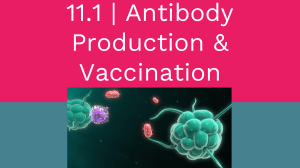THE IMMUNE SYSTEM
advertisement
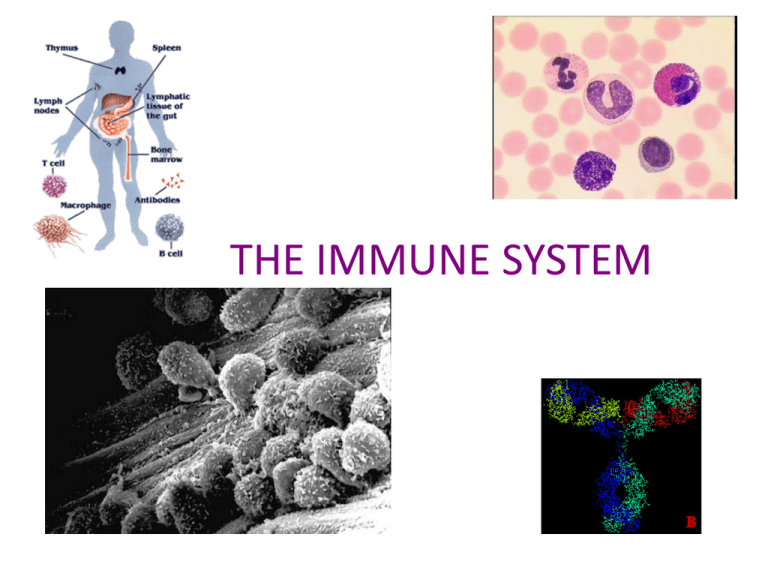
THE IMMUNE SYSTEM Blood Cells Cells of the Immune System White Blood Cells • Phagocytes - Neutrophils - Macrophages • Lymphocytes Lymphocytes • Produce antibodies • B-cells mature in bone marrow then concentrate in lymph nodes and spleen • T-cells mature in thymus • B and T cells mature then circulate in the blood and lymph • Circulation ensures they come into contact with pathogens and each other B -Lymphocytes B -Lymphocytes • Some activated B cells PLASMA CELLS these produce lots of antibodies. • The antibodies travel to the blood, lymph, lining of gut and lungs. B -Lymphocytes • Some activated B cells MEMORY CELLS. • Memory cells divide rapidly as soon as the antigen is reintroduced. • When the pathogen/infection infects again it is destroyed before any symptoms show. T-Lymphocytes • After activation the cell divides to form: • T-helper cells – secrete CYTOKINES help B cells divide stimulate macrophages • Cytotoxic T cells (killer T cells) Kill body cells displaying antigen • Memory T cells remain in body Active and Passive Immunity Natural passive immunity A mother’s antibodies pass across the placenta to the fetus and remain for several months. Colostrum (the first breast milk) contains lots of IgA which remain on surface of the baby’s gut wall and pass into blood Vaccination A preparation containing antigenic material: • Whole live microorganism • Dead microorganism Vaccination • Injection into vein or muscle • Oral Vaccination Why aren’t they always effective? • Natural infections persist within the body for a long time so the immune system has time to develop an effective response, vaccinations from dead m-os do not do this. • Less effective vaccines need booster injections to stimulate secondary responses Vaccination Why aren’t they always effective? • Some people don’t respond well/at all to vaccinations • Defective immune systems • Malnutrition particularly protein Allergies • When the immune system responds to harmless substances • Allergens – antigenic substances which do no real harm • Allergens include house dust, animal skin, pollen, house dust mite and its faeces Allergies • Histamine causes blood vessels to widen and become leaky. • Fluid and white blood cells leave capillaries. • The area of leakage becomes hot, red and inflamed Asthma • Attacks can occur at any time. • Genes play a role in who develops asthma. • Breathing becomes difficult, sufferers experience wheezing, coughing, a tightness about the chest and shortage of breath. Asthma • Airways in asthmatics are always inflamed, during an attack this worsens. • Airways can become blocked. • Muscles surrounding trachea and bronchioles contract which narrows airways further. BLOOD TYPES
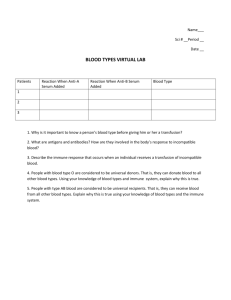
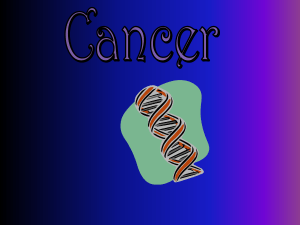
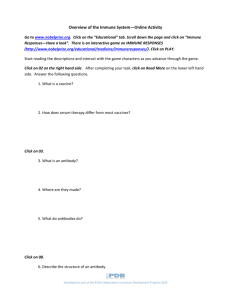
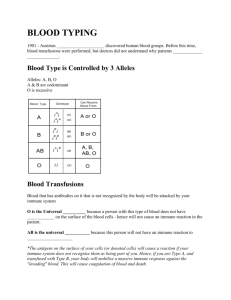
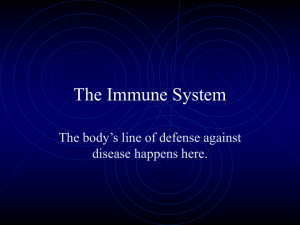
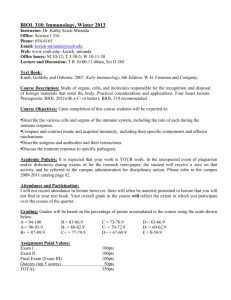
![Immune Sys Quiz[1] - kyoussef-mci](http://s3.studylib.net/store/data/006621981_1-02033c62cab9330a6e1312a8f53a74c4-300x300.png)
